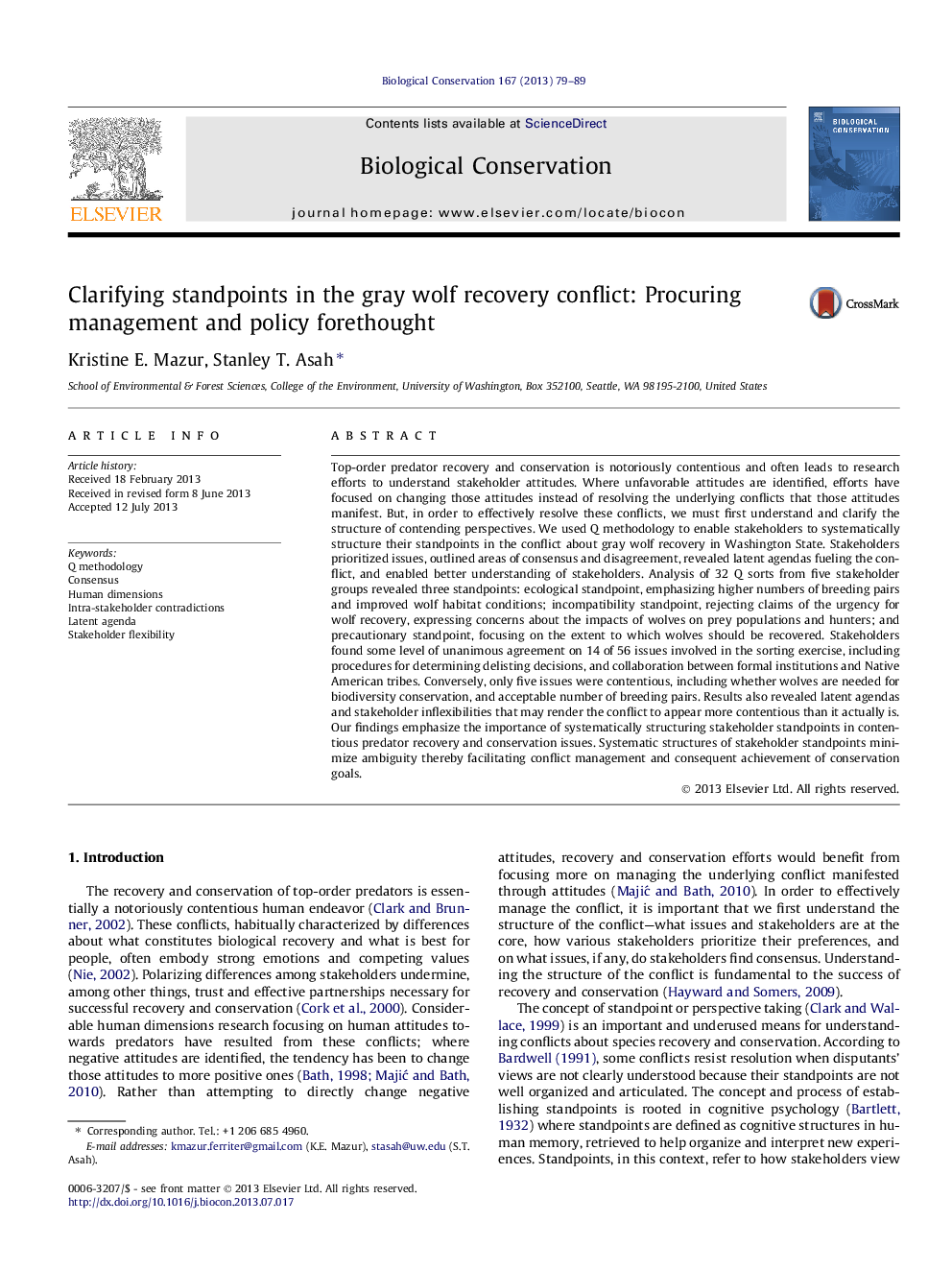| کد مقاله | کد نشریه | سال انتشار | مقاله انگلیسی | نسخه تمام متن |
|---|---|---|---|---|
| 6300589 | 1617934 | 2013 | 11 صفحه PDF | دانلود رایگان |
عنوان انگلیسی مقاله ISI
Clarifying standpoints in the gray wolf recovery conflict: Procuring management and policy forethought
ترجمه فارسی عنوان
موضع گیری روشن در تعارض بازی گرگ خاکستری: مدیریت خرید و پیش بینی سیاست
دانلود مقاله + سفارش ترجمه
دانلود مقاله ISI انگلیسی
رایگان برای ایرانیان
موضوعات مرتبط
علوم زیستی و بیوفناوری
علوم کشاورزی و بیولوژیک
بوم شناسی، تکامل، رفتار و سامانه شناسی
چکیده انگلیسی
Top-order predator recovery and conservation is notoriously contentious and often leads to research efforts to understand stakeholder attitudes. Where unfavorable attitudes are identified, efforts have focused on changing those attitudes instead of resolving the underlying conflicts that those attitudes manifest. But, in order to effectively resolve these conflicts, we must first understand and clarify the structure of contending perspectives. We used Q methodology to enable stakeholders to systematically structure their standpoints in the conflict about gray wolf recovery in Washington State. Stakeholders prioritized issues, outlined areas of consensus and disagreement, revealed latent agendas fueling the conflict, and enabled better understanding of stakeholders. Analysis of 32 Q sorts from five stakeholder groups revealed three standpoints: ecological standpoint, emphasizing higher numbers of breeding pairs and improved wolf habitat conditions; incompatibility standpoint, rejecting claims of the urgency for wolf recovery, expressing concerns about the impacts of wolves on prey populations and hunters; and precautionary standpoint, focusing on the extent to which wolves should be recovered. Stakeholders found some level of unanimous agreement on 14 of 56 issues involved in the sorting exercise, including procedures for determining delisting decisions, and collaboration between formal institutions and Native American tribes. Conversely, only five issues were contentious, including whether wolves are needed for biodiversity conservation, and acceptable number of breeding pairs. Results also revealed latent agendas and stakeholder inflexibilities that may render the conflict to appear more contentious than it actually is. Our findings emphasize the importance of systematically structuring stakeholder standpoints in contentious predator recovery and conservation issues. Systematic structures of stakeholder standpoints minimize ambiguity thereby facilitating conflict management and consequent achievement of conservation goals.
ناشر
Database: Elsevier - ScienceDirect (ساینس دایرکت)
Journal: Biological Conservation - Volume 167, November 2013, Pages 79-89
Journal: Biological Conservation - Volume 167, November 2013, Pages 79-89
نویسندگان
Kristine E. Mazur, Stanley T. Asah,
